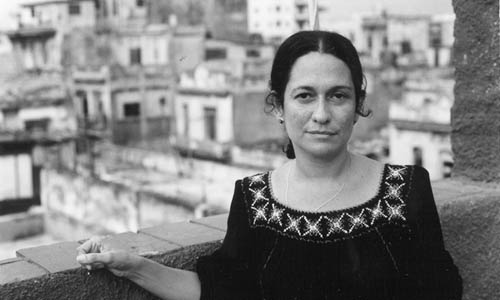
Photo credit: © 1998 Andrés Walliser About Reina María Rodríguez Reina María Rodriguez was born in Havana in 1952, less than a decade before the Cuban revolution. While Rodríguez' early poetry shows the influence of colloquialism, she has sought to develop a complex, philosophical voice, creating a space for difference within an ideologically saturated environment. In Cuba, Rodríguez is now recognized not only as a major poet but as an advocate for alternative (non-state) cultural spaces. She used her rooftop home, informally known as la azotea de Reina, as an intellectual salon that has been important in Havana for three decades. Among Rodríguez' publications are La gente de mi barrio (1978); Cuando una mujer no duerme (UNEAC, 1980); Para un cordero blanco (Casa de las Américas, 1984); En la arena de Padua (Ediciones Unión, 1992); Páramos (Ediciones Unión, 1993); La foto del invernadero (Casa de las Américas, 1998); and the anthology Ellas escriben cartas de amor. Reina María Rodríguez has won two Casa de las Américas Prizes (1984, 1998), three National Critics' Awards (1992, 1995, 1999), two Julián de Casal Prizes (1980, 1983), the National Literature Prize, Cuba's top literary prize (2013), and the Pablo Neruda Ibero-American Award for Poetry (2014) English translations of her work include Violet Island and Other Poem, tr. Kristin Dykstra and Nancy Gates Madsen (Green Integer., 2004), La detencion del tiempo / Time's Arrest , tr. Dykstra (Factory School, 2005), and Other Letters to Milena / Otras cartas a Milena, tr. Dykstra (University of Alalbama Press, 2014) |